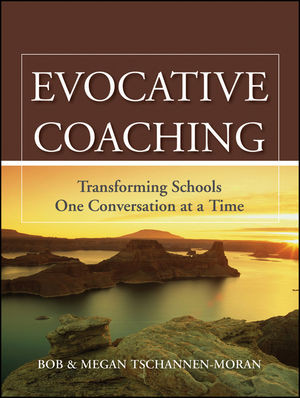

Most ebook files are in PDF format, so you can easily read them using various software such as Foxit Reader or directly on the Google Chrome browser.
Some ebook files are released by publishers in other formats such as .awz, .mobi, .epub, .fb2, etc. You may need to install specific software to read these formats on mobile/PC, such as Calibre.
Please read the tutorial at this link: https://ebookbell.com/faq
We offer FREE conversion to the popular formats you request; however, this may take some time. Therefore, right after payment, please email us, and we will try to provide the service as quickly as possible.
For some exceptional file formats or broken links (if any), please refrain from opening any disputes. Instead, email us first, and we will try to assist within a maximum of 6 hours.
EbookBell Team

0.0
0 reviewsBringing together the best research and wisdom in educational leadership and professional coaching, authors Bob and Megan Tschannen-Moran have developed a simple yet profound way of facilitating new conversations in schools through Story Listening, Expressing Empathy, Appreciative Inquiry, and Design Thinking. It s an iterative process that moves beyond old ways of thinking, doing, and being. It s an inspirational process that reinvigorates the passion for making schools better, one conversation at a time.
This happens when coaches:
Each chapter provides a research-based theory to support the strategies presented, and includes specific suggestions and anecdotes. The Evocative Coaching model makes coaching enjoyable by getting people to focus on what they do best, and it invites larger, more integral conversations so that people talk about their work in the context of other things they care about. Resting on strong, evidence-based practices, the Evocative Coaching model offers educators the help they need to meet the challenges of increased accountability and expectations. This model can also be used effectively by coaches and leaders in other organizational contexts.
Table of Contents:
To learn more about Evocative Coaching and to sign up for the Evocative Coach Training Program, visit www.SchoolTransformation.com.Content:
Chapter 1 What is Evocative Coaching? (pages 1–26):
Chapter 2 Coaching Presence (pages 27–52):
Chapter 3 Story Listening (pages 53–84):
Chapter 4 Expressing Empathy (pages 85–120):
Chapter 5 Appreciative Inquiry (pages 121–170):
Chapter 6 Design Thinking (pages 171–210):
Chapter 7 Aligning Environments (pages 211–231):
Chapter 8 Coaching Conversations (pages 233–259):
Chapter 9 The Reflective Coach (pages 261–281):